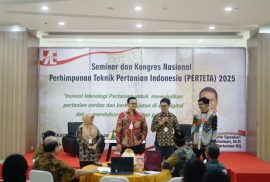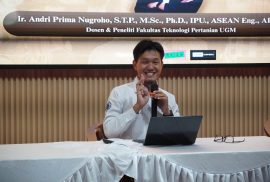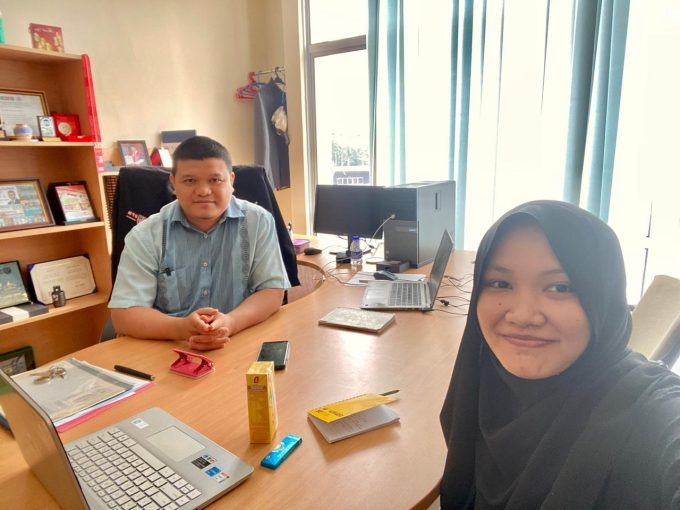
Serdang, Malaysia – Arifa Haryani, a master’s student in Agricultural Engineering from Gadjah Mada University’s (UGM) Department of Agricultural and Biosystems Engineering, participated in a week-long research exchange program at Universiti Putra Malaysia (UPM) from December 16-26, 2024. This joint supervision program, funded by UGM’s Directorate of Partnerships and Global Relations, was overseen by her primary supervisor, Ir. Andri Prima Nugroho, Ph.D., IPU., ASEAN Eng., at UGM’s Smart Agriculture Research Center (SARC), and co-supervised by Assoc. Prof. Dr. Nazmi Mat Nawi, Head of UPM’s Department of Biological and Agricultural Engineering. Arifa’s research focuses on utilizing spectral sensors to enhance crop quality in indoor farming systems.
During her visit, Arifa was not only given the opportunity to initiate her research but also gained valuable experiences. She visited UPM’s spectral laboratory, where she was introduced to spectral analysis technology for assessing plant quality. Arifa learned how spectral instruments work in detecting plant health based on spectral reflectance values and the wavelengths of light reflected, using tools such as the C Circuit Spectroscopy, HR 4000CG-UV-NIR, Ocean Optics halogen light square HL 2000, and SPAD. She also practiced analyzing data from several plant samples, comparing data from SPAD and spectroscopy using Spectragryph software. Assoc. Prof. Nazmi provided crucial guidance, such as optimizing sensor positioning to enhance data accuracy and recommending the number of measurement repetitions for each treatment.
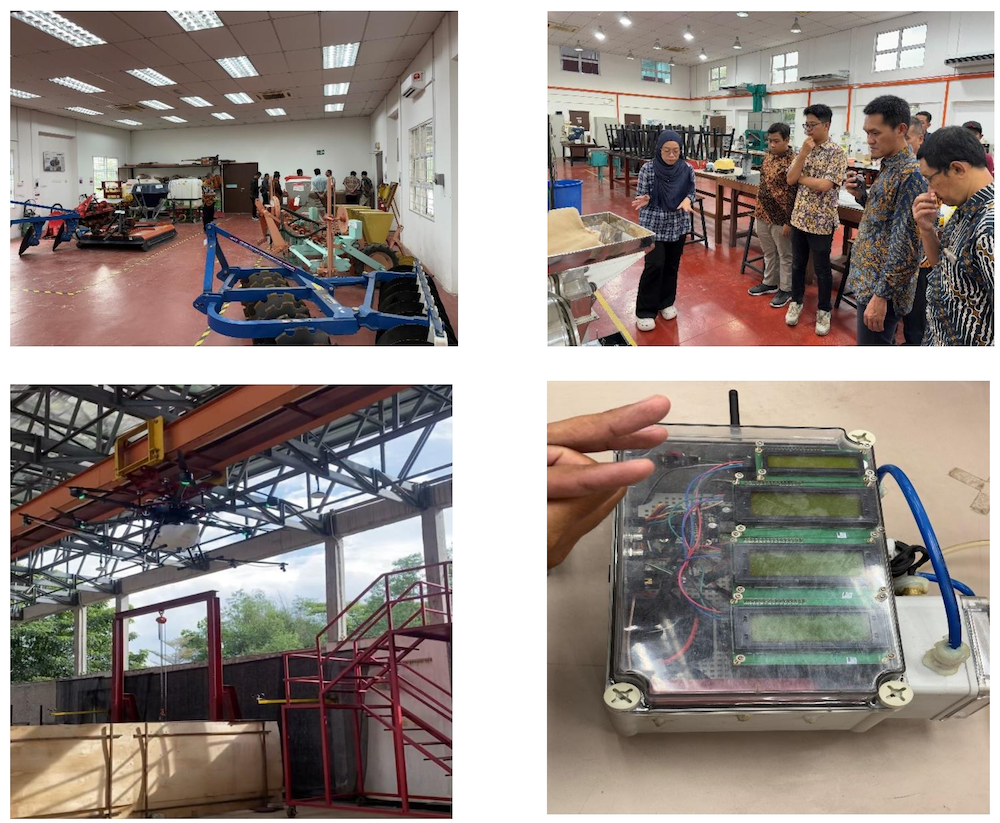
Through this program, Arifa gained valuable insights into optimizing her research methods, including sensor placement, sample size, and real-time spectral data acquisition. The hands-on experience in analyzing spectral data using spectroscopy improved her skills and supported further research. Discussions and presentations during the visit strengthened academic ties between the two universities, paving the way for future research collaborations. By applying the suggestions received, the quality and validity of Arifa’s research are expected to improve significantly.
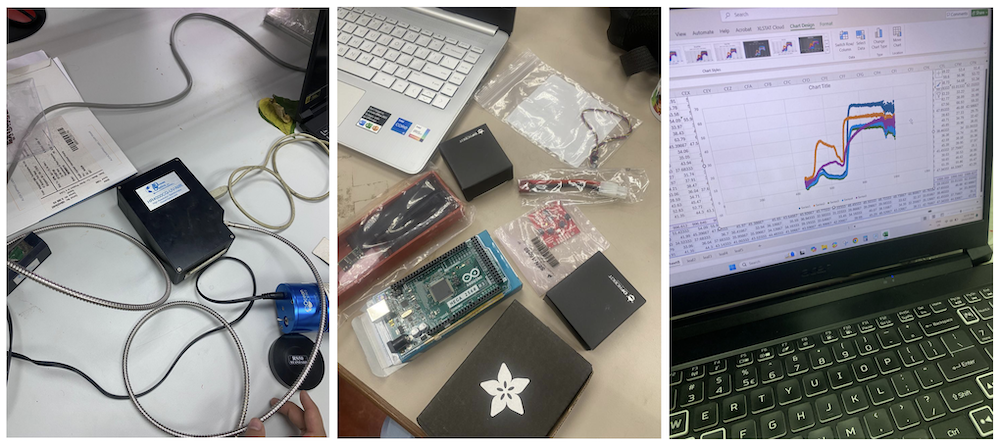
The success of this program demonstrates the commitment of UGM and UPM to foster innovation and international collaboration in agriculture, contributing to the achievement of the Sustainable Development Goals (SDGs) through increased productivity and food security. The integration of advanced technologies like spectral sensors in indoor farming aligns with the SDGs’ focus on sustainable agricultural practices and enhancing agricultural productivity.
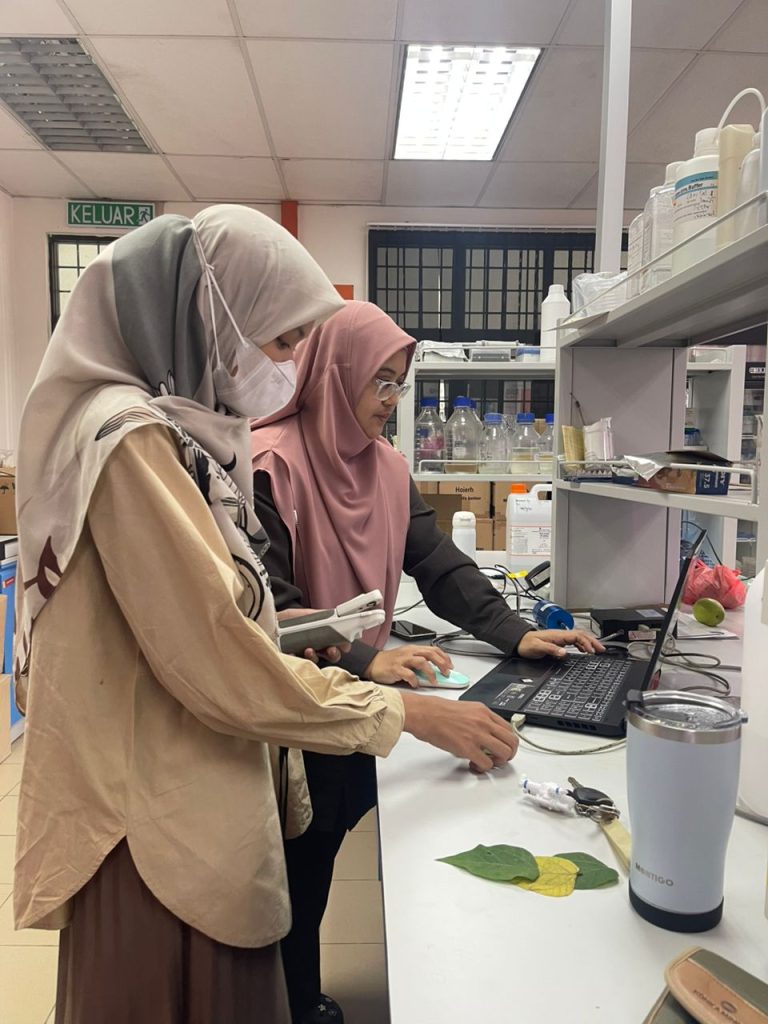
Arifa expressed her gratitude for the opportunity to participate in this program, stating that the experience has broadened her perspective on agricultural research and technology. She emphasized the importance of collaboration between institutions to address global challenges in agriculture, particularly in the context of food security and sustainability. The knowledge gained from UPM will undoubtedly influence her future research endeavors and contribute to the development of innovative solutions in the agricultural sector.
As the world faces increasing challenges related to food production and environmental sustainability, initiatives like the UGM-UPM joint supervision program play a crucial role in equipping future agricultural engineers with the skills and knowledge necessary to drive positive change. The collaboration not only enhances academic learning but also fosters a spirit of innovation that is essential for addressing the pressing issues of our time

